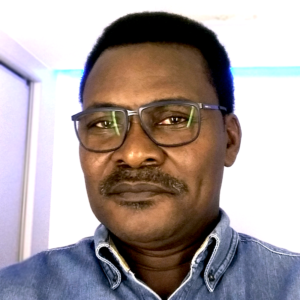Bankole Falade is a research fellow at the Centre for Research on Evaluation, Science and Technology (CREST) and has authored 19 peer reviewed articles in international publications: 8 in journals, 7 as book chapters, 2 books and 2 book reviews. He was lead author in 12 of the publications and has also published podcasts, blogs and online videos on science communication issues.
He is a Visiting Fellow of the Department of Psychological and Behavioural Sciences (DPBS), London School of Economics and Political Science and Advisory Board Member, International Research Network for the Study of Science and Belief in Society, Birmingham University, United Kingdom. He is also a Member, Research Coordination Network, Cross Cultural Data Infrastructures (RCN, CCDI) Department of Psychology, Evolution, Variation, and Ontogeny of Learning Laboratory (EvoLearn), University of Texas, Austin, United States. He is a member of the scientific committee, “Science and You 2021”, University of Lorraine, France; Member of the PCST (Public Communication of Science and Technology https://pcst.co/ ) network and MACAS (Mapping the Cultural Authority of Science www.macas-project.com) and Data Editor, Cultures of Science Journal, of the National Academy of Innovation Strategy, China.
He worked as a Postdoctoral Scholar at the Department of Psychological and Behavioural Sciences (DPBS), London School of Economics and Political Science, London where he was co-director of the MSc Health, Community and Development Programme and taught the MSC course, ‘The Social Psychology of Health Communication’. He was also at the University of Bielefeld, Germany as a Post-Doctoral Researcher on big data mining of science news in the British, German and Indian press funded by the ESRC (UK), DFG (Germany) and ISSRC (India).
He is currently working on a 17 Chapter book titled: Health Communication and disease in Africa: beliefs, traditions and stigma to be published by Palgrave Macmillian UK and an article on the religious beliefs, sociocultural and economic influences on young scientists of South African universities.



